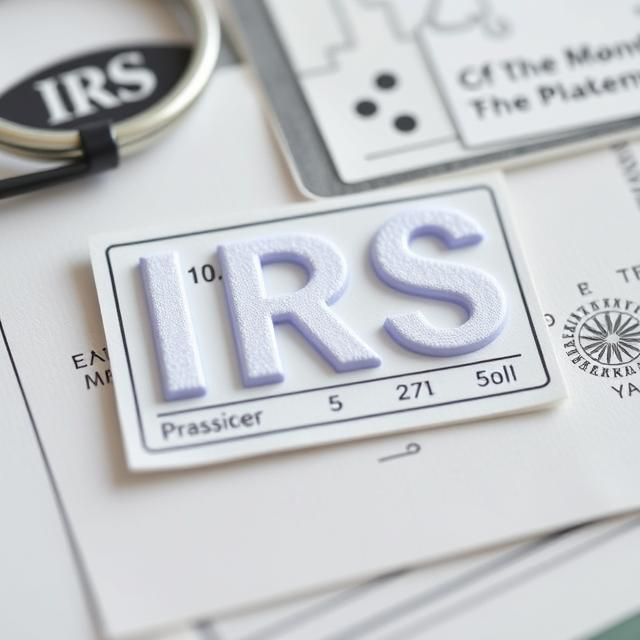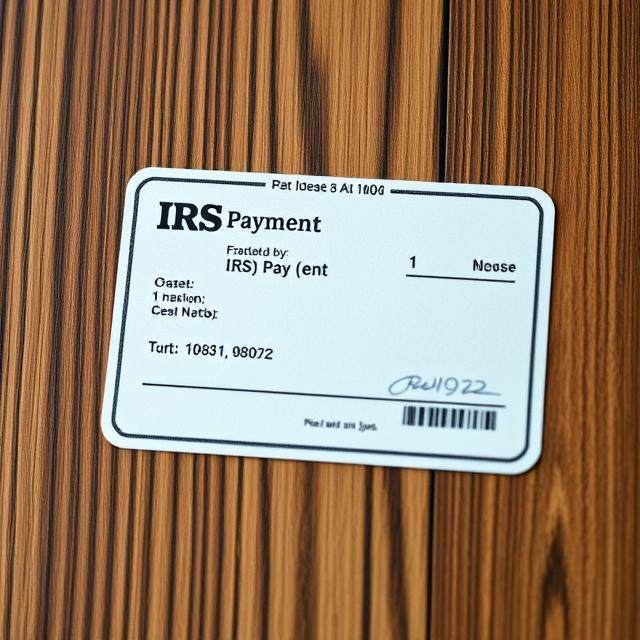Tax season can be stressful, and understanding IRS payments is crucial for every taxpayer. Whether you owe taxes, are planning to pay estimated taxes, or need to set up an installment agreement, familiarity with how IRS payments work can save you money and hassle. This comprehensive guide covers everything you need to know about IRS payments, ensuring you comply with federal regulations while maximizing your potential refunds and avoiding penalties.

What Are IRS Payments and Why Do They Matter?
IRS payments represent the amounts that taxpayers owe to the Internal Revenue Service based on their income and other factors, such as deductions and credits. These payments are critical because they ensure that government programs are funded, including Social Security, infrastructure, and public services. If taxpayers do not fulfill their obligations, they may face serious penalties, including fines and interest charges. For many individuals and businesses, understanding the mechanics of IRS payments is a key component of financial literacy. Being informed can help you navigate the tax landscape more smoothly and avoid unpleasant surprises come tax season.
Types of IRS Payments: From Estimated Payments to Installment Agreements
There are various types of IRS payments that taxpayers should be aware of. One major category is estimated payments, which are typically made by self-employed individuals or freelancers who do not have taxes withheld from their income. These payments are made quarterly based on anticipated income. Another type is related to annual tax returns, where individuals and businesses settle the total amount owed at the end of the tax year. Installment agreements allow taxpayers unable to pay their full tax bill to pay off their debt over time. Each of these types serves a unique purpose in the tax system, making it imperative to choose the correct method based on your financial situation.
How to Calculate Your IRS Payment: Step-by-Step Guide
Calculating your IRS payment involves several factors, including total income, deductions, and applicable tax rates. First, start with your gross income and subtract any eligible deductions, such as student loan interest or mortgage interest. This will give you your taxable income. Next, apply the appropriate tax rates based on your filing status—single, married filing jointly, etc. Once you have your calculated taxes, subtract any credits for which you qualify. The resulting figure will indicate how much you owe or what your refund will be. If you anticipate owing money, calculating it timely can help you make estimated payments and avoid late fees.
Important Deadlines: When to Make Your IRS Payments
Being aware of important deadlines is essential for managing your IRS payments effectively. For most individual taxpayers, the federal income tax return is due on April 15 each year. If you owe taxes, you need to pay by this date to avoid penalties and interest, even if you file for an extension. Estimated quarterly payments are typically due on April 15, June 15, September 15, and January 15 of the following year. If these deadlines are missed, taxpayers risk incurring fines, which can quickly accumulate. Maintaining a calendar of tax due dates can help you stay organized and compliant with IRS regulations.
Common Methods to Make IRS Payments: Options for Taxpayers
The IRS offers various methods for taxpayers to make their payments. One popular option is electronic payments through the IRS Direct Pay system, which allows for direct debit from a bank account without added fees. Taxpayers can also use the Electronic Federal Tax Payment System (EFTPS), an online service that allows for both individual and business payments. Alternatively, payments can be made via check or money order, but these methods can take longer to process. Understanding these options enables taxpayers to select the most convenient and expedient method for settling their obligations with the IRS.
How to Avoid Late Fees and Penalties on IRS Payments
Avoiding late fees and penalties associated with IRS payments requires proactive planning and clear understanding of your financial obligations. First, always ensure that you file your tax return on time, even if you cannot pay the full amount owed. If you anticipate difficulties in making a payment on time, consider contacting the IRS to discuss your options. Setting up an installment agreement is one approach to avoid late penalties; this allows you to pay your tax bill over time without incurring excessive fines. Additionally, maintaining accurate records and promptly making estimated payments can further help mitigate any risks of fines, making it easier to manage your IRS payments.

IRS Payment Plans: What You Need to Know About Installment Agreements
An IRS payment plan allows taxpayers to pay their taxes in installments instead of in one lump sum. This option is invaluable for individuals who find themselves unable to pay their tax debts immediately. Applying for an installment agreement can be done online or through IRS forms, and it’s especially important to ensure that you meet certain eligibility criteria before application. There are different types of installment agreements, including short-term and long-term plans. Though you may incur some interest and fees, these arrangements provide flexibility and support to taxpayers struggling to meet their IRS payment obligations.
Understanding Tax Refunds: How They Relate to IRS Payments
Tax refunds occur when you overpay your IRS payments throughout the year, often due to withholdings from your paycheck or estimated tax payments. If your tax liabilities for the year are less than the total payments you’ve made, the IRS will refund you the difference. It’s essential to understand how your withholding and estimated payments can impact your overall tax situation. Maximizing deductions and credits can also lead to larger refunds. Tax refunds can be viewed as a result of efficient planning and management of IRS payments, helping taxpayers appreciate the benefits of remaining compliant with tax laws.
Tips for Staying Organized with Your IRS Payment Records
Staying organized with your IRS payment records is crucial for effective tax management. Begin by maintaining a dedicated folder—either digital or physical—for all tax-related documents, including receipts, bank statements, and tax forms. For electronic payments, keep copies of confirmation emails and statements from your bank. Regularly reviewing your records can also help catch any errors that may result in inaccurate payments. Additionally, consider using tax software that can help streamline the organization of your IRS-related information. Keeping meticulous records not only aids in financial planning but also makes the tax-filing process less daunting come tax season.
Conclusion
Understanding IRS payments is crucial for effective financial management. Whether you are preparing to make estimated payments, settle your tax bill, or set up a payment plan, knowing your obligations and options can alleviate much of the stress associated with tax responsibilities. By staying organized and being proactive about your IRS payments, you can navigate through tax season with ease, avoid penalties, and potentially maximize your refunds. Familiarity with IRS requirements and deadlines can not only save you money but also pave the way for improved financial health year-round.
FAQs
What happens if I miss my IRS payment deadline?**
Missing your deadline can result in penalties and interest charges on the outstanding tax amount.
Can I set up a payment plan with the IRS?**
Yes, individuals can apply for an installment agreement to pay off tax debts over time.
How can I check the status of my IRS payment?**
You can visit the IRS website to check your payment status using their online tools.
Are IRS payments the same for self-employed individuals?**
Self-employed individuals typically pay estimated taxes quarterly, rather than a lump sum at year-end.
What are estimated payments?**
Estimated payments are prepayments made on anticipated income, usually for freelancers or self-employed individuals.
Can I pay my IRS taxes with a credit card?**
Yes, but be aware that additional fees may apply, and this can result in credit debt if not managed properly.
What are the consequences of underpaying my taxes?**
Underpayment can lead to penalties, interest charges, and potential audit scrutiny.
Is it worth it to get assistance from a tax professional?**
Often, yes; a tax professional can help navigate complex tax situations and maximize deductions.
What will happen if I can’t pay my taxes?**
You may qualify for a payment plan, but interest and penalties will continue to accrue until the debt is resolved.
How often can I change my payment method?**
You can change your payment method as needed, just be sure to communicate any changes to the IRS in a timely manner.